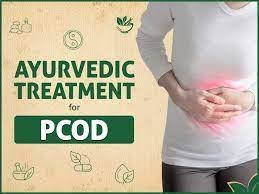What is PCOD?
PCOD or Polycystic Ovary Disorder is a medical condition that involves the production of partially mature or immature eggs by the ovaries. It is a metabolic disorder and a slightly moderate form of PCOS.
But it definitely interferes with normal cycles and hormone regulation in the patient’s body leading to some concerning issues that need timely attention. Almost 10% of women across the world suffer from PCOD and most of them don’t even realize they are suffering from PCOD till it starts showing some serious side effects or grows into PCOS (Polycystic Ovary Syndrome). We can cure this medical condition with PCOD treatment in Ayurveda.
Causes of PCOD
The exact cause of PCOD is yet to be ascertained. But it has been observed that this disease has a close association with excess insulin, low-grade inflammation, genetics, and high-quantity production of male hormones by the female body. Apart from that an unhealthy lifestyle, pollution, and early menarche are some of the other reasons closely associated with the occurrence of this disease. Ayurveda gives special emphasis on the latter as most patients who complain about PCOS/PCOD follow a hectic schedule, irregular eating routine, unhealthy eating habits, and stressful life.
Major Symptoms Of PCOD
Here are a few major symptoms of PCOD observed by doctors in the last few years:
- Heavy bleeding or menorrhagia
- An irregular menstrual cycle that causes the occurrence of periods once every 2-3 months.
- Excess weight gain around the waist area
- Abnormal weight gain
- Male-pattern baldness
- Infertility
- Headaches
- Stubborn acne that doesn’t go even with usual remedies and treatments due to underlying peripheral androgen.
- Unusual growth of body hair especially on and around the face (hirsutism)
- Darkening or skin pigmentation in the area around the neck
A patient may experience one or many of these symptoms depending on the intensity of the problem. Although it is to be noted that a person with clear skin, zero facial hair, and regular periods may also suffer from PCOD. It is because sometimes PCOD is caused by malfunctioning of the endocrine system. But the doctors are of the opinion that insulin resistance is one of the primary causes of PCOD. Insulin is responsible for regulating sugar all across our bodies. But when the body develops insulin resistance there is a surge in insulin production which leads to several side effects including PCOD.
Complications Associated With PCOD
A number of problems can arise from uncontrolled PCOD. The list includes difficulty in conception, higher risk for type 2 diabetes, perinatal complications for pregnant women, gestational diabetes, pre-eclampsia, long-term risk of endometrial cancer, high cholesterol, high blood pressure as well as high vulnerability to breast cancer.
How Is PCOD Different From PCOS?
Medically, PCOS is a much more serious condition compared to PCOD. PCOD is a disorder while PCOS is a disease. Here are a few other pointers that clarify the difference between PCOD and PCOS.
- PCOS is a problem caused by malfunctioning of the endocrine system while PCOD is caused by hormonal imbalance and genetics. The primary theory suggests that high levels of male hormones in the system prevent the ovaries from producing hormones responsible for generating eggs.
- PCOD is of more common occurrence. Currently, the stats suggest that one-third of women around the world suffer from PCOD but PCOS claims a lower number of patients.
- PCOD seldom becomes a major cause of infertility but PCOS has a huge impact on conception due to hormonal irregularities.
Ayurvedic Treatment For PCOD
PCOD treatment in Ayurveda is an imbalance of doshas and works to treat the root cause of this disease. The process begins with a thorough discussion with the patient to ascertain the exact cause of the problem and work on it to bring relief to the patient. The treatment plan is tailored according to age, medical history and extent of the problem.
Read Also – Health Related Articles
Mostly, it begins with herbal medication, Panchakarma therapies and some lifestyle adjustments that the patient needs to adhere to as long as the treatment goes on.
The patient can see and feel visible relief within 2-3 weeks and once the treatment is complete the patient may return to their regular lifestyle. However, they are recommended to consult with best Ayurvedic doctor in India for regular follow ups and follow a healthy routine and diet to keep the recurrence of the problem in future.
